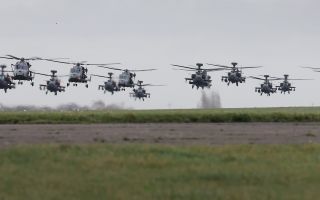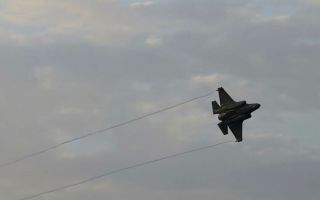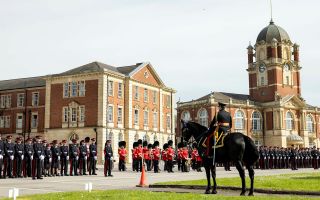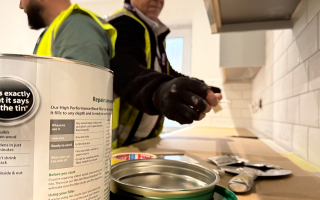Defence: 2016
While attention is focussed on the work of troops in the UK – thousands are still serving abroad.
2015 was marked by an expansion of Operation Shader, against Islamic State, and a new plan for the Armed Forces in the Defence Review. But what does 2016 hold?
We can safely expect a lot more bombing in the Middle East… almost certainly right through 2016.
When the US-led coalition started striking against IS or Daesh, less than 18 months ago, President Obama said he expected it would take at least 3 years to complete. There remains no sign of a swift end.
So Britain will continue to bomb in Iraq and Syria, launching missions from RAF Akrotiri in Cyprus. But there is a question about whether the US may want to target IS somewhere else.
The islamist group is growing in Libya and 6 weeks ago America carried out its first strike there. Britain hasn’t been asked to bomb in Libya, if it were and it’s a big IF, that would require another politically drawn out vote in Parliament.
But Britain’s forces may well have other work in a region still deeply divided 4 years after the fall of Colonel Gaddafi. There are tentative hopes the country’s two rival governments may start working together. That could clear the way for hundreds British troops to train Libyan security forces to fight against Daesh for themselves.
But Libya is just one of the places British forces could find themselves training others in 2016. After Iraq and Afghanistan, Britain’s ground forces are getting used to not being committed to fighting. Barring any huge world events it’s likely that will continue through 2016.
Training others is part of the defence ‘engagement’ that was central to the Strategic Defence and Security Review. A far less painful shake up than the one 5 years ago, no job cuts, no big changes to terms and conditions… at least for those already serving.
But it still raised questions that forces and their families want answered in 2016.
There is one fight however we can predict in 2016. A battle of wills over the replacement of Britain’s nuclear armed submarines. Parliament is likely to vote in the next few months. The government will almost certainly win - but maybe not without political blood being spilled.









